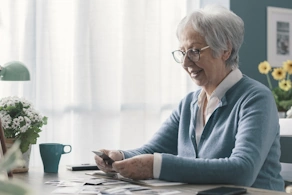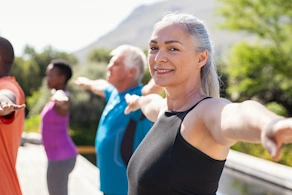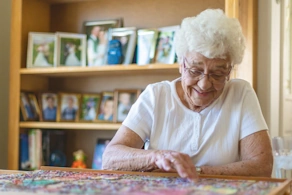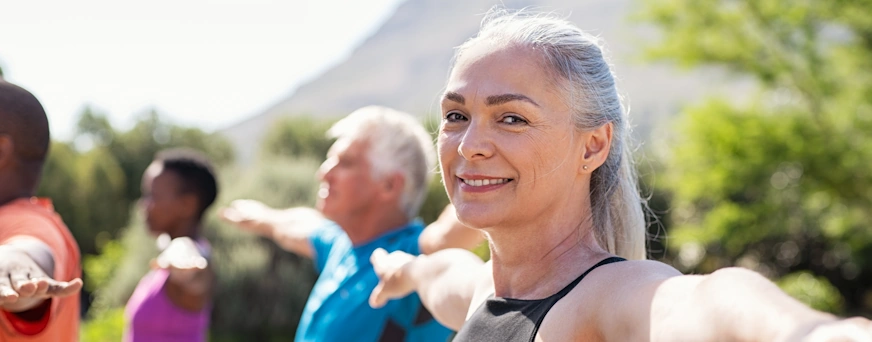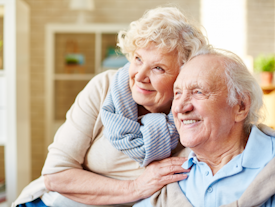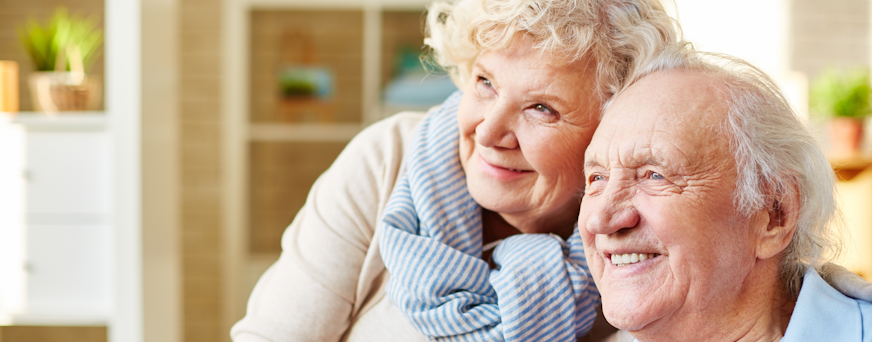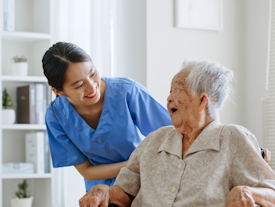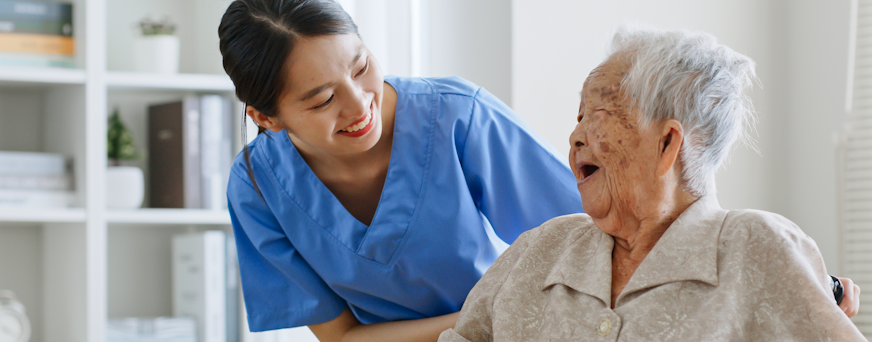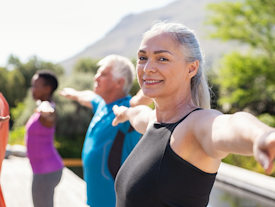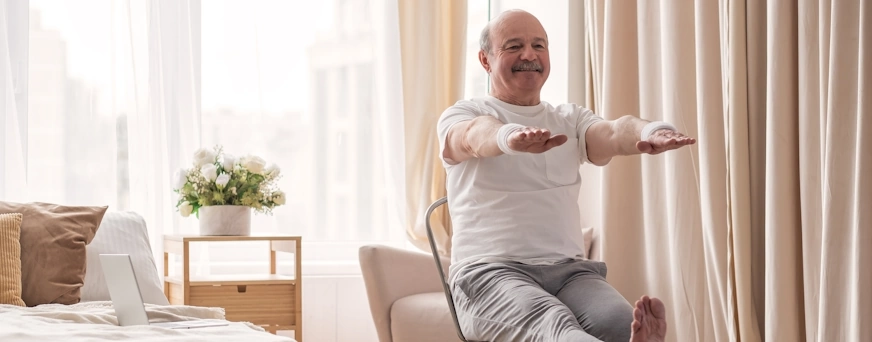Why Seniors Are Always Cold And What To Do To Help
Our Key Takeaway
As people age, a slower metabolism, thinner skin, and reduced circulation can make them feel cold more often. Seniors can stay comfortable and protect health by wearing layered clothing, keeping homes insulated, staying active with light movement, and drinking warm fluids regularly.
With advancing age, our physiology changes how we experience thermal stimuli and that is why seniors indeed feel colder than when they were younger. These are conditions that may lead to uneasiness and in severe cases adverse effects on the general wellbeing of an individual.
It is important to know why this comes about and come up with measures that can be taken to ensure that the seniors feel warmer whenever they are. This article will address why seniors get cold and how this problem can be solved.
Life Assure Product Quiz
Take our 30 second quiz and discover which Life Assure medical alert device is the right fit for you or a loved ones.
Life Assure Product Quiz
Take our 30 second quiz and discover which Life Assure medical alert device is the right fit for you or a loved ones.
Understanding Why Seniors Often Feel Cold

Here are the certain reasons why are old people always cold:
1. Why do seniors struggle with colder temperatures
In their lifetime, people go through various changes that may make them more sensitive to cold, including aging. Such as a low basal metabolic rate (BMR) which is our metabolism, or the number of calories we burn to produce heat.
A study from the National Institutes of Health’s National Library of Medicine reveals that a person’s BMR declines by roughly 2 percent per decade past the age of 30, and as seniors generate less internal heat, it becomes challenging to regulate their body temperature naturally.
2. The natural decline in body heat production
People experience a decline in the ability to generate heat and this will often lead to feelings of coldness even in conditions the person used to find comfortable. This is due in part to a drop in our basal metabolic rate or the rate at which our bodies metabolize calories to produce heat.
According to the latest National Institutes of Health National Library of Medicine study, BMR does decline by approximately 2 percent per decade after age 30, therefore, seniors just don’t produce as much internal heat and this is the reason why are old people always cold.
3. Reduced Circulation and Chilly Extremities
There is also a decline in circulation as we age and this is tantamount to the feeling of coldness in the extremities including the hands and feet. This is something that becomes apparent with age and which greatly affects the elasticity of blood vessels.
Experts state that we naturally have a decline of elasticity and an increase in artery stiffness in the course of aging, and this may affect blood circulation; such areas as hands and feet may feel cold.
4. How Skin Changes Affect Temperature Regulation
First of all, our skin is one of the main thermoregulatory organs, and as people age, the skin also changes and to warm up it will be more difficult.
The National Institute on Aging emphasizes that skin becomes thinner with age, the skin’s subcutaneous layer diminishes, and the skin’s ability to insulate the body is diminished.
This low insulation can make it hard for the seniors to warm up and as a result, they are always cold all through.
5. Side Effects That Can Make You Feel Cold
Certain medications commonly prescribed to seniors can be the reason why are old people always cold. The Americans Geriatrics Society notes that beta-blockers for high blood pressure can restrict blood flow, leading to cold extremities.
Diuretics, used to manage fluid buildup, may also impair circulation, causing cold sensations. Additionally, some antidepressants and thyroid medications can contribute to feeling cold.
Awareness of these side effects is crucial for managing discomfort, and ensuring better care for seniors experiencing these issues.
Ways that Can Help Seniors

There are certain ways through which we can help the elderly beat the reasons why are old people always cold
1. Simple Strategies to Help Seniors Keep Warm
There are several simple strategies to keep them warm and cozy.
● Layering Up: Loose and multiple-wear garments are practical since seniors may overheat if they are bundled up all day and night and the rooms are warmed up. Depending on the inside layers, fibers like wool or fleece make good insulators while outer garments such as windbreakers will offer additional insulation.
● Staying Active: Gentle exercise helps increase blood flow and generate heat internally. Encourage daily walks, light yoga routines, or simple chair exercises to keep seniors moving and warm.
● Warming from Within: Staying hydrated with warm beverages like herbal tea or broth can help raise internal body temperature. However, be cautious with hot beverages and ensure proper supervision to avoid burns.
● Cozy Comfort: Encourage using warm blankets and throws while relaxing at home. Consider heated blankets for added comfort, especially on chilly evenings.
● Addressing Drafts: Sealing drafty windows and doors is crucial for maintaining a warm and comfortable home environment.
2. Choosing the Right Clothing Option
Dressing strategically is essential for keeping seniors warm. Here's what to consider:
● Layering: Layer up with moisture-wicking fabrics, such as merino wool or silk, for the base, intermediate layer of fleece or flannel. Sort of a jacket that to keeps off the harsh conditions or the rough end of the weather.
● Natural Fabrics: Use materials like wool for insulation and absorption of moisture, fleece for warmth and cotton for ventilation.
● Loose-Fitting Clothes: To promote free blood circulation, it is best not to wear clothes that are too fitted. Choose variants that can provide ventilation and multiple layers.
● Warm Socks and Headwear: Prevent heat loss by providing warm wool or thermal socks and a cozy hat, as significant heat escapes through the head and extremities.
3. Importance of Gentle Exercise
Gentle exercise is effective for combating chills, as it boosts blood flow, essential for warming the body. The National Institute on Aging emphasizes that even low-impact activities like walking, light yoga, or chair exercises can generate internal heat, helping seniors feel warmer.
Regular physical activity also enhances muscle tone, which supports better temperature regulation.
4. Home Heating Hacks
Creating a warm home environment is essential for senior comfort. The doctor recommends setting the thermostat to a comfortable 68-72°F (20-22°C). Address drafts by sealing leaks around windows and doors and using insulated curtains.
Adding area rugs on bare floors and heated throws on couches can enhance coziness. Ensuring a warm, draft-free space helps seniors feel comfortable and relaxed at home.
Conclusion
So far, we have studied in-depth articles on the reasons why are older people always cold and how certain circumstances increase that risk. In the end, the measures provided can help these individuals avoid being sick as frequently.





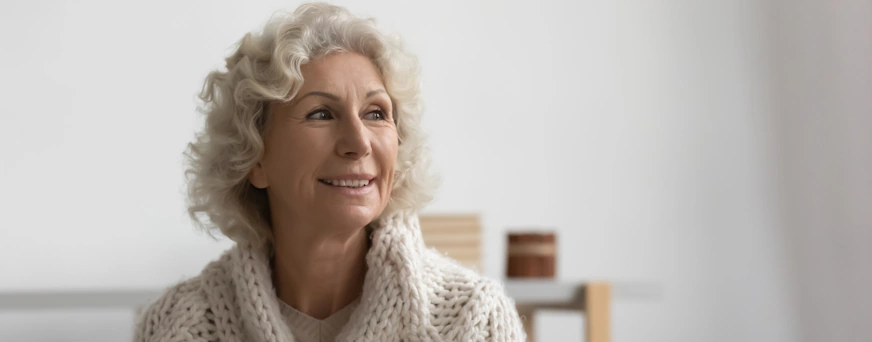






 Get Help With The Push Of
A Button
Get Help With The Push Of
A Button

